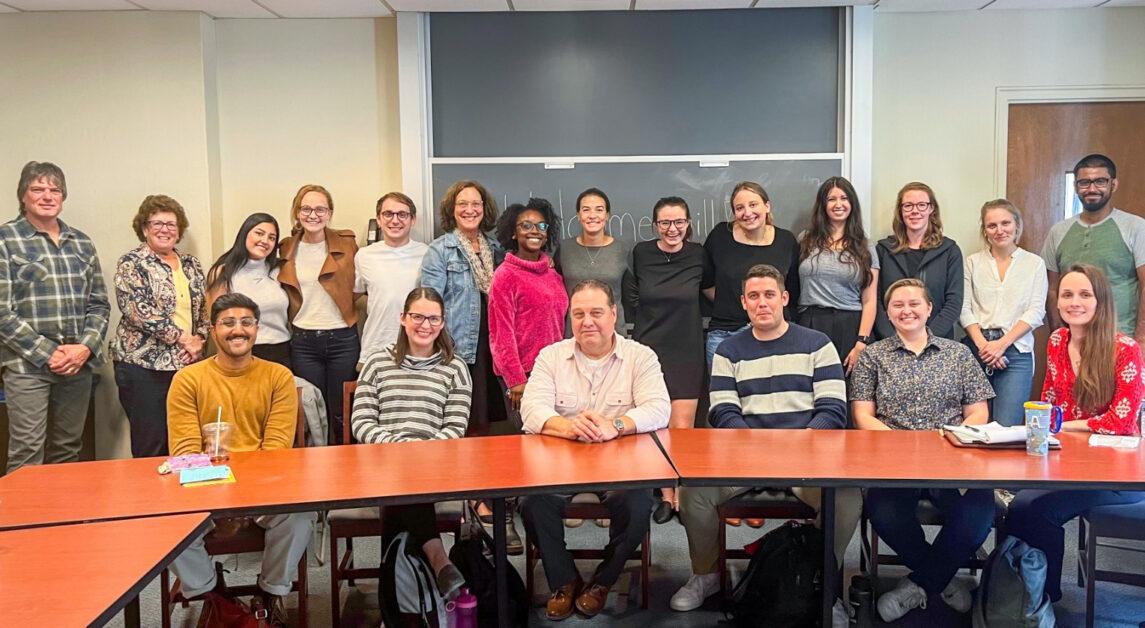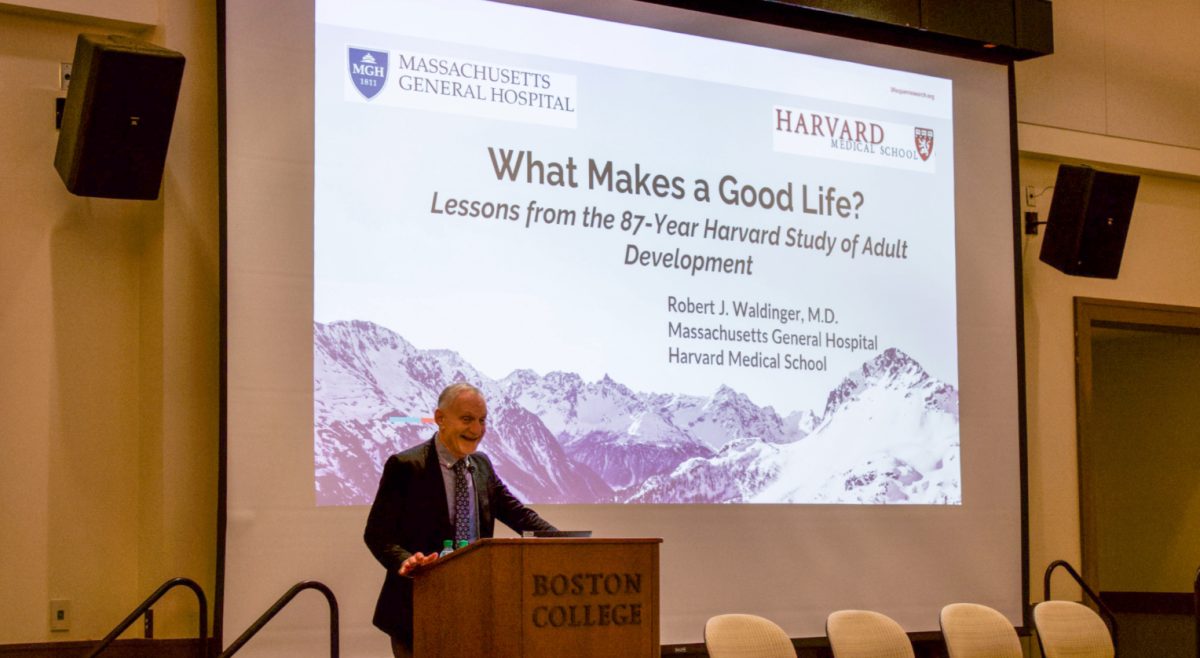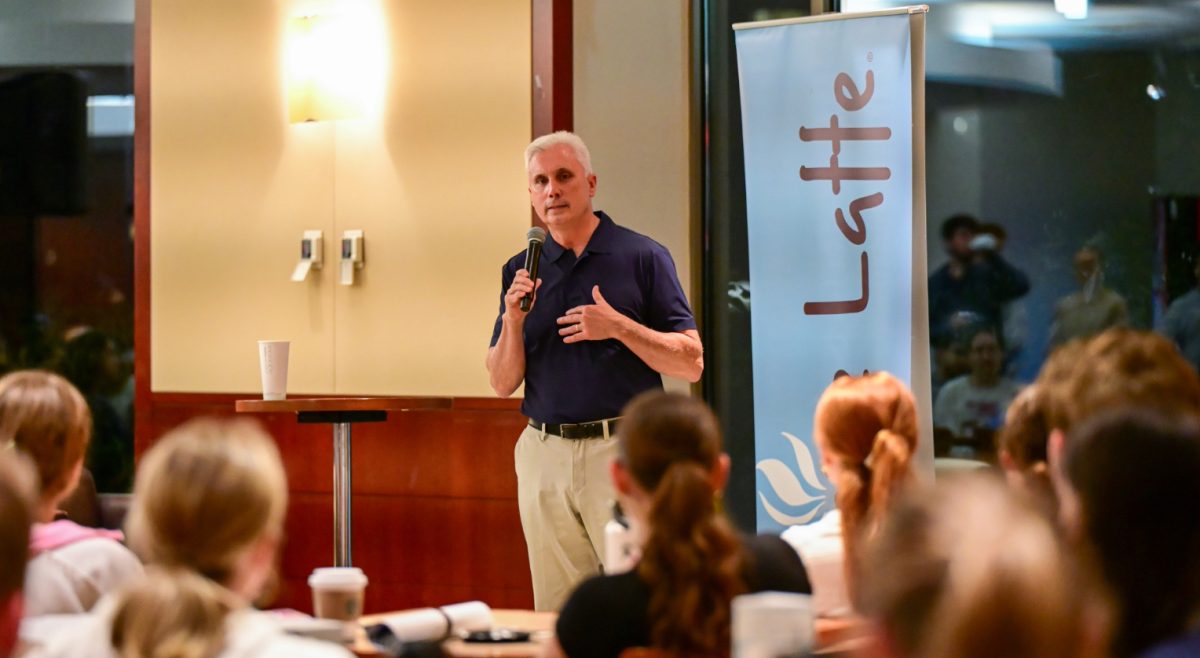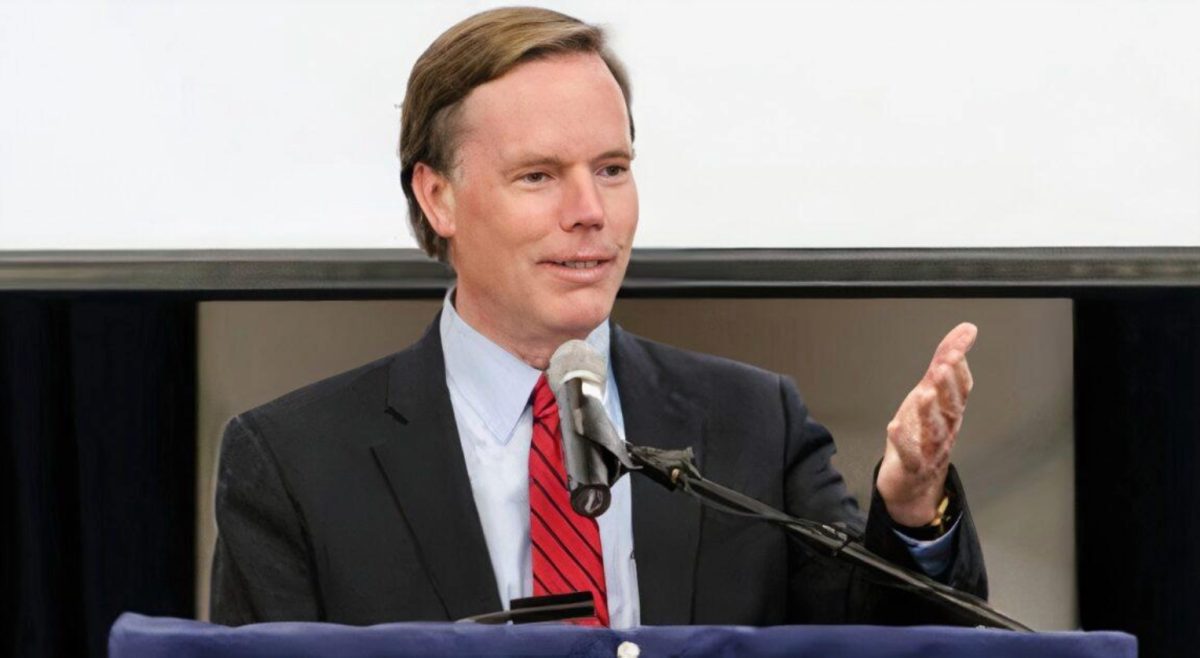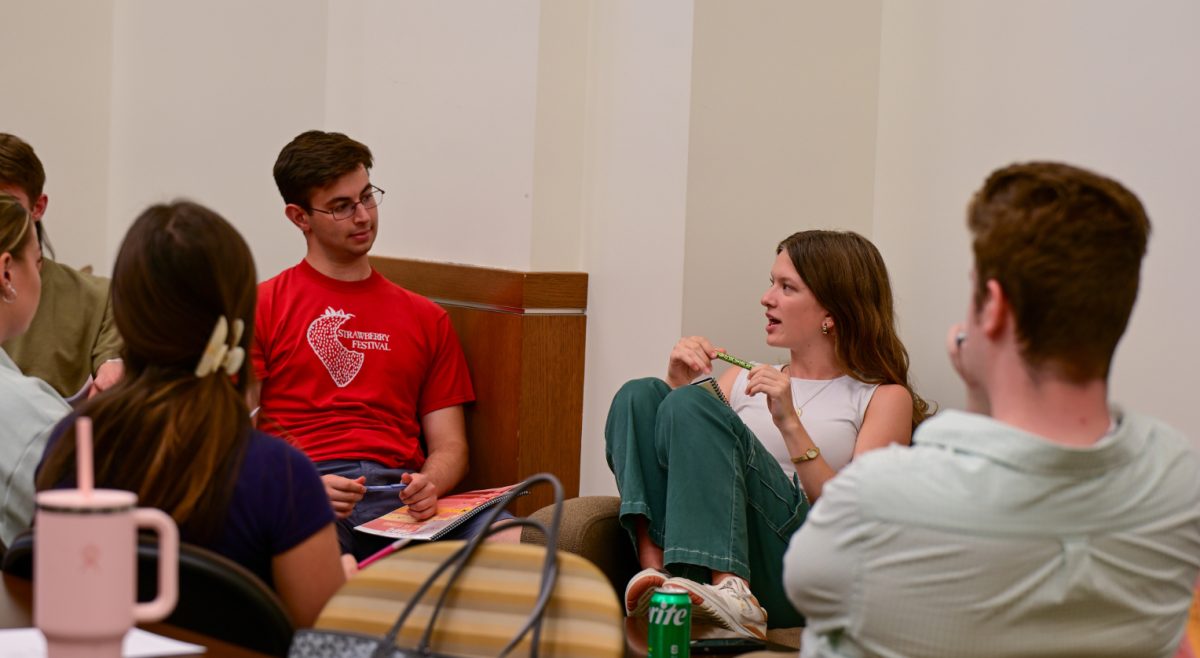“I was there … when he was released from prison and his brother picked him up,” said David Grimaldi, the defense attorney who represented Cascone and BC Law ’07. “It’s a tremendous thing to watch somebody walk out of prison after 35 years.”
Cascone was convicted of arson and second-degree murder for setting a fire that killed three children in the ’80s. BCIP secured his release based partly on new science that can determine if a fire was intentionally set, according to Charlotte Whitmore, the supervising attorney at BCIP.
The court accepted a motion to stay the completion of Cascone’s sentence—allowing for his temporary release from prison—pending a hearing and decision on a motion for a new trial, according to Grimaldi.
In the last three years, the BCIP has helped overturn the sentences of four individuals who were wrongfully convicted of murder and sentenced to life in prison.
“Through our program they were freed and collectively they served something like 130 years in prison for crimes they didn’t commit,” said Sharon Beckman, founder and director of the BCIP.
At the BCIP, an academic and clinical legal program at the BC Law School, law students work alongside staff attorneys to represent people imprisoned in Massachusetts for crimes they maintain they did not commit. They also collaborate with community partners on law and policy reforms aimed to prevent wrongful convictions.
“Students can’t appear in court on behalf of our clients, but they can do a lot of the work with us,” Whitmore said. “So like drafting or interviewing witnesses, they do all of that under the supervision of attorneys.”
According to Beckman, the BCIP consists of two components—a year-long clinic where students work under supervision to represent imprisoned clients and a multidisciplinary research and writing class called the Wrongful Convictions Seminar, which Beckman teaches.
Whitmore said that when a client comes to the BCIP and requests representation, undergraduate interns review the case to see whether it meets the program’s requirements. Law students then work under the supervision of one of the staff attorneys and begin to reinvestigate the case.
“[BCIP] looks at the case very deeply to decide whether this is an innocence claim that requires, or would benefit from, further investigation,” Beckman said. “And then if the answer to that is yes, then our clinic gets involved in a more thorough investigation of the client’s case.”
Grimaldi said he reviewed Cascone’s case and concluded the evidence at trial was very weak and likely faulty, so he approached the BCIP to help him start the process of appealing the case.
“I was actually first asked to represent Bill Cascone in connection with a parole hearing,” Grimaldi said. “When I met him, he told me that he would not do the parole hearing, because they would expect him to admit to committing the crime and he was innocent. … He urged me to review his case.”
Cameron Casey, former BCIP participant and BC Law ’21, worked on reinvestigating Cascone’s case and drafting portions of his new trial motion. She said helping with the case was “one of the most special things” she has ever done.
“I could tell Bill had a strong claim of innocence just from reading about his case, but when I finally met him in person, I had no doubt in my mind,” Casey said. “He has a very kind and patient demeanor and always stayed so positive about his case even when we faced setbacks.”
Whitmore said it can take six to 12 months to compile an investigative report of cases. Students work with staff attorneys to collect and review documentary evidence, engage in fact investigation, and work with forensic experts to evaluate whether the evidence in the case was unreliable, or whether there is new scientific evidence that casts doubt on the justice of the conviction.
“The bottom line is if we get to the point where we believe that the client was wrongfully convicted and that we can present sufficient new evidence in a motion for new trial to vacate their conviction, then we will enter an appearance and represent that client in a rule 30 motion for post conviction relief in the Massachusetts Superior Court,” Beckman said.
According to Beckman, the BCIP is one of over 70 innocence programs around the world. But it is different from other programs, as it is housed in a university, not within a government agency or a nonprofit. This allows the BCIP to collaborate with other departments in the BC community to assist in reinvestigating its cases, Beckman said.
“The fact that the Boston College Innocence Program is part of the University is one of the things that I find the most rewarding about my work,” Beckman said. “It’s very extraordinary to have these university resources and it enables our program to be a very important resource to the government and other actors in the development of law in public policy.”
The BCIP also partners with BC’s Graduate School of Social Work to help its clients reenter society, according to Whitmore.
“There are full time faculty members who have their JD, their law degree, but they also have a master’s in social work,” Whitmore said. “So our clients are assigned a graduate social work student. … That person helps them with things like getting an ID, getting health care, getting a driver’s license, getting a job, all that sort of stuff.”
The BCIP’s work to exonerate those wrongly imprisoned is central to the Jesuit Catholic mission of service for others, according to Beckman.
“There is no right to counsel to help you prove your innocence post conviction,” Beckman said. “So the service that we and our students are providing, I think, is central to the mission where the students learn to be women and men for others.”
For Grimaldi, working with Cascone has been a pleasure and seeing the case’s progress has been an amazing experience.
“I’ve watched this case evolve from 2016, where he still thought he’d be serving a life sentence, to now,” Grimaldi said. “Of course, we’re still waiting to have the final hearing and final decision on the motion for [a] new trial.”
Casey said working in the BCIP was the most valuable learning experience she had in law school.
“It was incredible to learn from some of the best innocence [attorneys] in the country,” Casey said.

